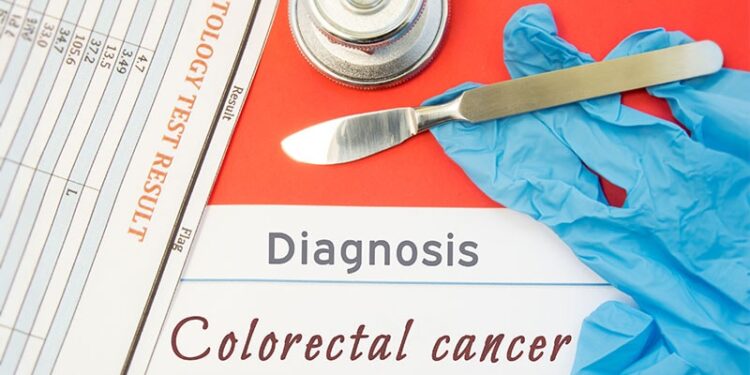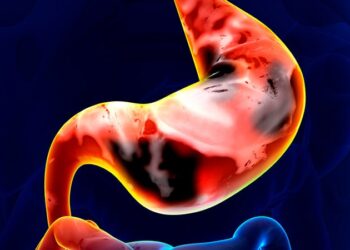TOPLINE:
A recently developed and validated risk prediction scoring system predicted the likelihood of detecting advanced colorectal neoplasia in adults < 45 years of age based on tobacco use history, body mass index (BMI), and a family history of colorectal cancer (CRC).
METHODOLOGY:
- Multiple risk factors associated with early-onset advanced colorectal neoplasia have been recognized, which may assist in identifying individuals < 45 years of age who could benefit from earlier screening than currently advised by guidelines.
- Researchers conducted a study to develop and validate a model estimating the likelihood of advanced colorectal neoplasia in adults < 45 years.
- They included participants who underwent colonoscopy at the Cleveland Clinic between 2011 and 2021, with those found to have advanced colorectal neoplasia serving as the case group and those with normal colonoscopy or non-advanced neoplasia serving as control participants.
- Advanced neoplasia was defined as a tubular adenoma ≥ 10 mm or any adenoma with villous features or high-grade dysplasia, sessile serrated polyp ≥ 10 mm, sessile serrated polyp with dysplasia, traditional serrated adenoma, or invasive adenocarcinoma.
- A multivariate logistic regression model was used to develop a risk prediction score for detecting advanced neoplasia; the performance of the risk score was assessed in a validation dataset.
TAKEAWAY:
- Researchers included 9446 participants (mean age, 36.8 years; 61% women), of whom 346 (3.6%) had advanced colorectal neoplasia and 9100 served as control participants.
- Researchers identified BMI (P = .0157), family history of CRC (P < .0001 for first-degree relative < 60 years with CRC and P =.0117 for other family history of CRC), and tobacco use (P = .0015 for current users and P =.0009 for former users) as independent risk factors for advanced neoplasia.
- A risk prediction score was developed on the basis of these risk factors, estimating the likelihood of detecting advanced neoplasia, which ranged from 1.8% for a score of 1 to 22.2% for a score of 12; individuals with a score of ≥ 9 had a 14% or higher risk for advanced neoplasia.
- The model showed moderate discriminatory power in the validation set (c-statistic, 0.645), indicating that it can effectively differentiate between individuals at a higher and lower risk for advanced neoplasia.
IN PRACTICE:
“This measure can facilitate timely decision-making and optimize screening and preventive strategies for the early detection of advanced colorectal neoplasia,” the authors wrote.
SOURCE:
This study was led by Sarah Wehbe, Digestive Disease and Surgery Institute, Cleveland Clinic, Cleveland, and published online in Digestive Diseases and Sciences.
LIMITATIONS:
This study was conducted at a single tertiary center, primarily involving White non-Hispanic adults, which may have limited generalizability to the broader population. The cohort approximated an asymptomatic screening population and may not have truly reflected the actual screening population, as individuals aged 18-44 years typically do not undergo routine CRC screenings. The accuracy of documentation in electronic health records may be incomplete or outdated, particularly for variables such as alcohol, tobacco, and aspirin use, which could not be accurately quantified.
DISCLOSURES:
The study did not receive any funding. The authors declared no competing interests.
This article was created using several editorial tools, including AI, as part of the process. Human editors reviewed this content before publication.
Source link : https://www.medscape.com/viewarticle/novel-score-predicts-colorectal-neoplasia-adults-younger-2025a10005w9?src=rss
Author :
Publish date : 2025-03-11 10:11:00
Copyright for syndicated content belongs to the linked Source.














